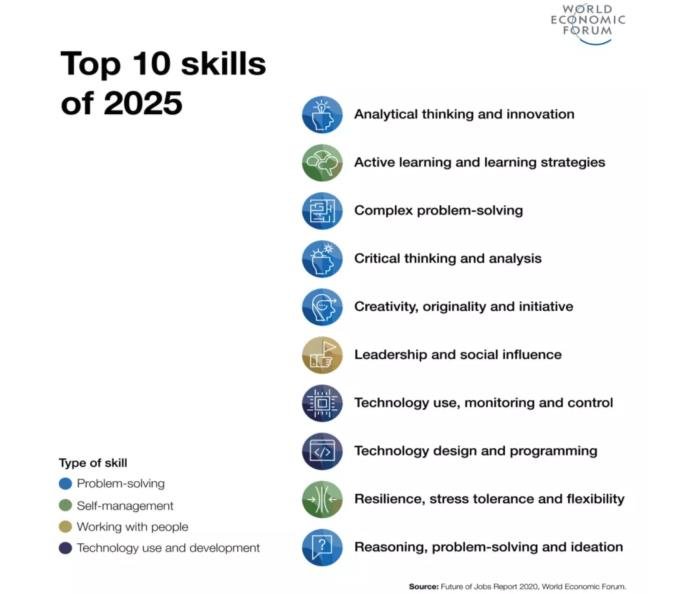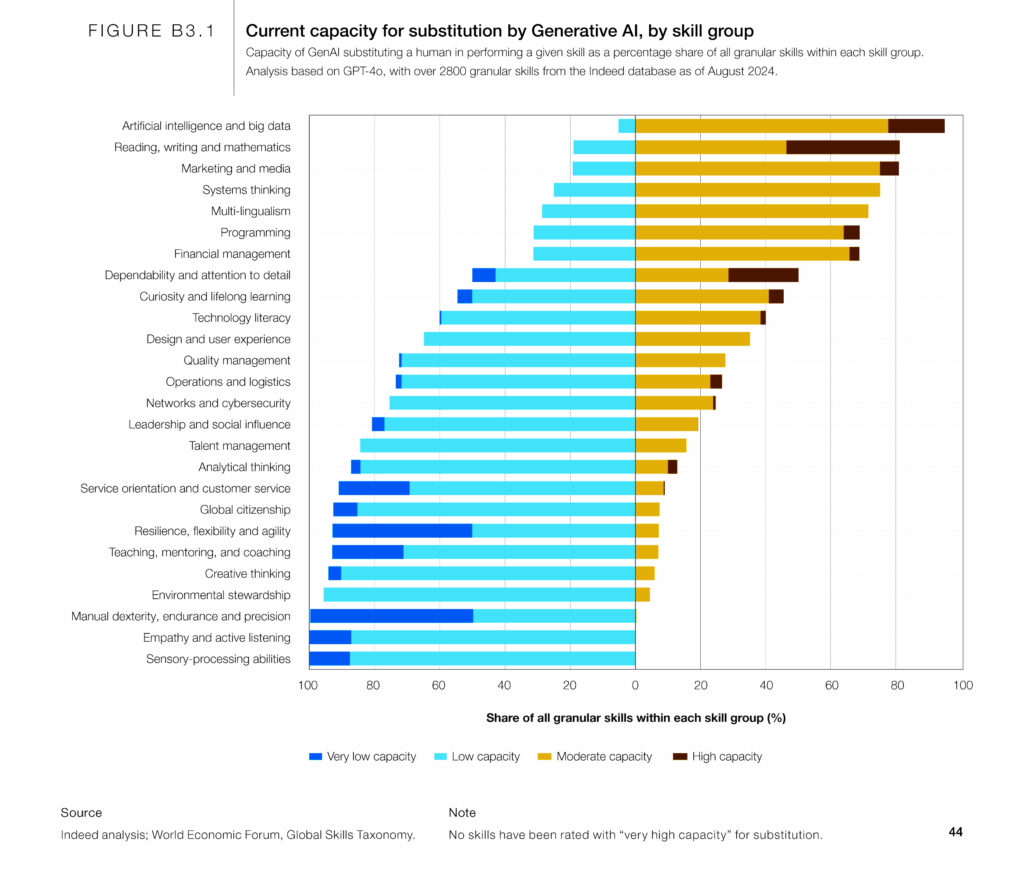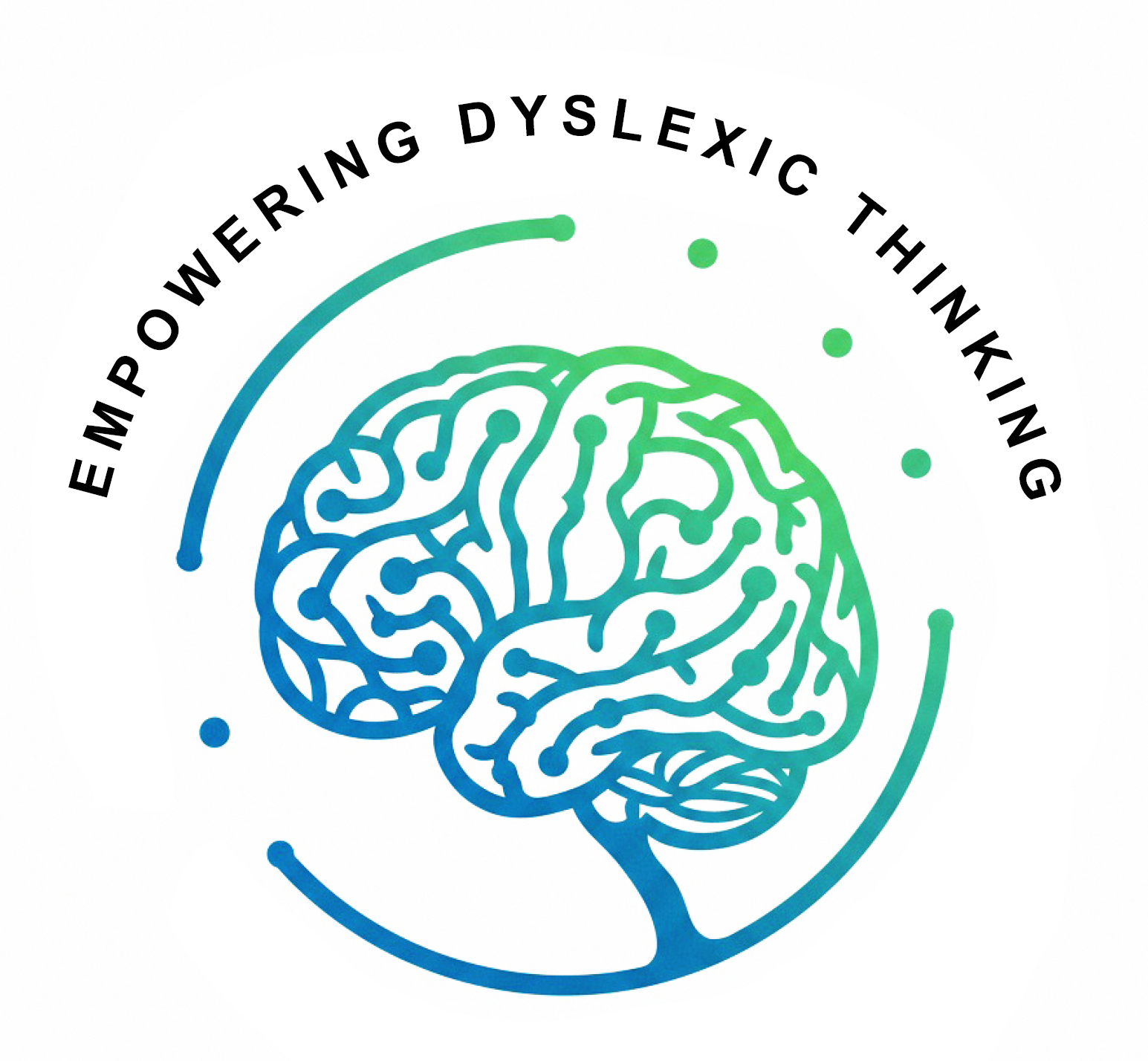The data shows that Dyslexics have strengths well above average in visualising, imagining, communicating, reasoning, connecting, and exploring. These 6 core skills have now been recognised as Dyslexic Thinking skills by Made by Dyslexia organisation.
According to World Economic Forum research into skills demand in the future, the top 10 skills for 2025 were:
Analytical Thinking & Innovation, Active Learning & Learning Strategies, Complex Problem Solving, Critical Thinking & Analysis, and Creativity, Originality & Initiative.

This research was conducted in 2020.
There is a good match between these future skills and Dyslexic Thinking skills. So, recognising Dyslexic Thinking as a skill of the future is based on facts. This is just one example of ongoing research.
AI and Dyslexic Thinking
The most recent data is looking into what has happened after the AI revolution and what it means for skill development.
The obvious impact is the direct increase in AI, Big Data and Machine Learning skills demand. But what are the gaps in skills that AI can’t replace? At least, not yet or in the near future.
IDENTIFYING AI SKILLS GAPS
A recent report by the World Economic Forum, called the Future of Jobs Report 2025, was published in January.
The graph below reveals areas of the current capacity for substitution by Generative AI, by skill group. The yellow and brown areas indicate high capacity, whereas the blue areas indicate low capacity.

The lowest AI capacity areas are:
- Sensory-processing abilities
- Empathy and active listening
- Manual dexterity, endurance and precision
- Environmental Stewardship
- Creative Thinking
- Teaching, mentoring and coaching
- Resilience, flexibility and agility
Based on the research, you could argue that Dyslexic Thinking skills are the type of skills that can’t easily be replaced by AI.
Recognised Skill
You can get validation for your Dyslexic Thinking skill by linking it to your LinkedIn profile.
Here is a video link about it.
You can also study Dyslexic Thinking courses at the Open University, provided by The University of Dyslexic Thinking and the Made by Dyslexia organisation.

Leave a Reply